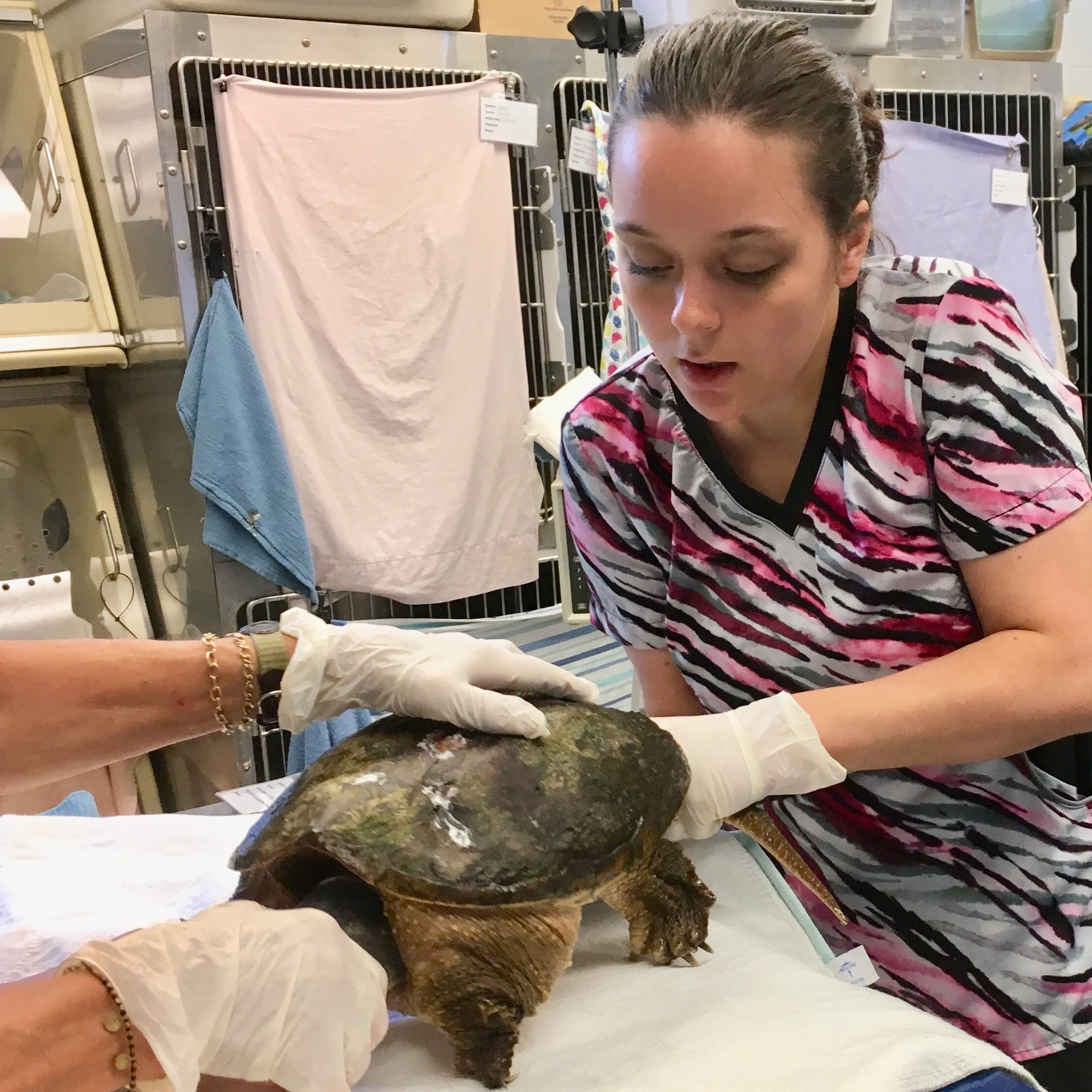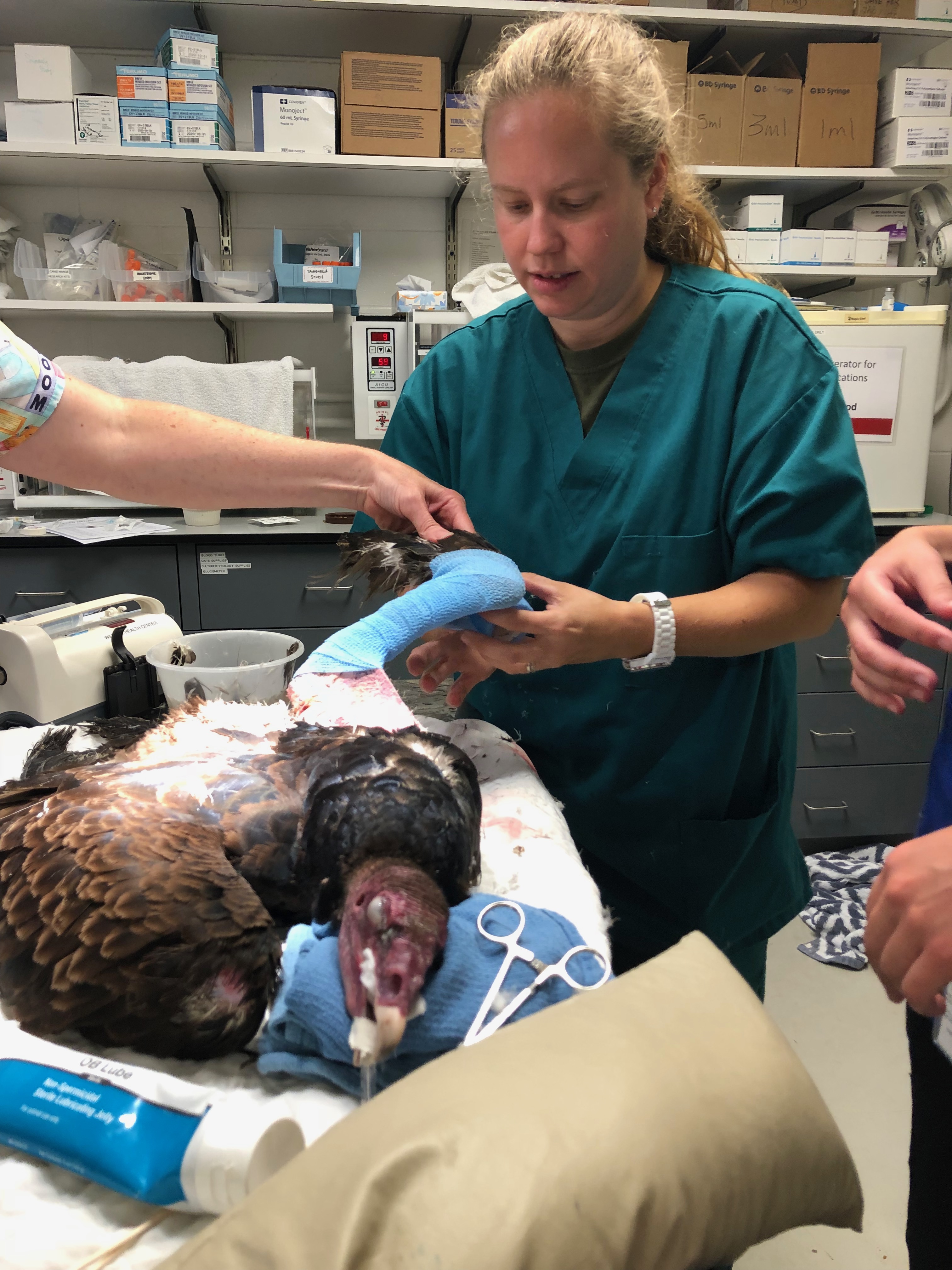Wildlife Medicine Preceptorship
The Janet L. Swanson Wildlife Hospital in Ithaca NY provides state-of-the-art medical and surgical care to injured and sick wildlife native to the northeastern United States. Over 2000 birds, small mammals, reptiles, and amphibians are treated each year by the staff at the Wildlife Health Hospital. Our primary mission is to provide the highest quality medical care to these animals with the goal of releasing them back to the wild.
When Will the Preceptorship Take Place?
Successful candidates are offered one of two 6-week block commitments:
- May 26-July 7 OR July 9-Aug. 20, 2026
Preceptors will work 4-5, 8-hour days
What are the Qualifications I need?
- At least one year of Veterinary Technology coursework completed with a minimum 3.0 GPA from an accredited AVMA Veterinary Technology program
- Proof of Rabies pre-exposure vaccinations or current titer
- Proof of current health insurance
- Ability to lift 30lbs


How Do I Apply?
Students interested in applying for a preceptorship opportunity can submit queries and application materials attention Wildlife Preceptorship to the CVM LVT Preceptorships Program at lvtpp@cornell.edu. Incomplete applications will not be considered.
Please click here to find the Cornell University Hospital for Animals preceptorship program
All Applications Must Include:
- Cover Letter
- Resume
- Completed LVT Preceptor application
- One (1) letter of recommendation
Formal Interviews will be offered during the month of March 2025 by zoom or in person.
When is the Deadline for Applications?
The application period will open year round beginning November 1st, 2024
Deadline for Class of 2025 applications is March 7th, 2025
After March 7th, applications will be processed based on availability.
When Will I Know If I've Been Accepted?
Preceptors will be selected and notified by March 28th, 2025
What Does the Preceptorship Involve?
This is a 6-week preceptorship with a cost of living stipend. Following an initial orientation, student preceptors will observe tasks and procedures and then quickly be given increased responsibility throughout the hospital according to their comfort and skill level. Every student will receive training and/or exposure (including but not limited to) to the following: patient capture and restraint with an emphasis on safety measures; preparation and administration of daily patient treatments; patient triage, physical examination, and diagnostic testing; induction, maintenance, and monitoring of general anesthesia; proper technique and positioning of patients for radiographs; surgical assistance; medical record keeping; hematology, cytology, and parasitology; animal husbandry and enrichment; feeding of neonatal mammals and birds; effective communication; and attendance of and participation in daily clinical rounds. They will also be expected to assist the staff with general maintenance of the hospital including cleaning, stocking, laundry, and mopping. Students also will participate in labs and lectures at the Cornell Hospital for Animals during their preceptorship.
At the beginning of the program, preceptors will be provided with a checklist detailing basic wildlife knowledge and skills that they will be expected to master during their experience. Mentorship is provided by four licensed veterinary technicians. Preceptors will also work in close contact with wildlife veterinarians and veterinary students. Licensed veterinary technician mentors will work directly with the students to help guide them in completion of their checklist. Students will be expected to complete their preceptorship with an informal presentation focusing on a topic or clinical case of their choice.



